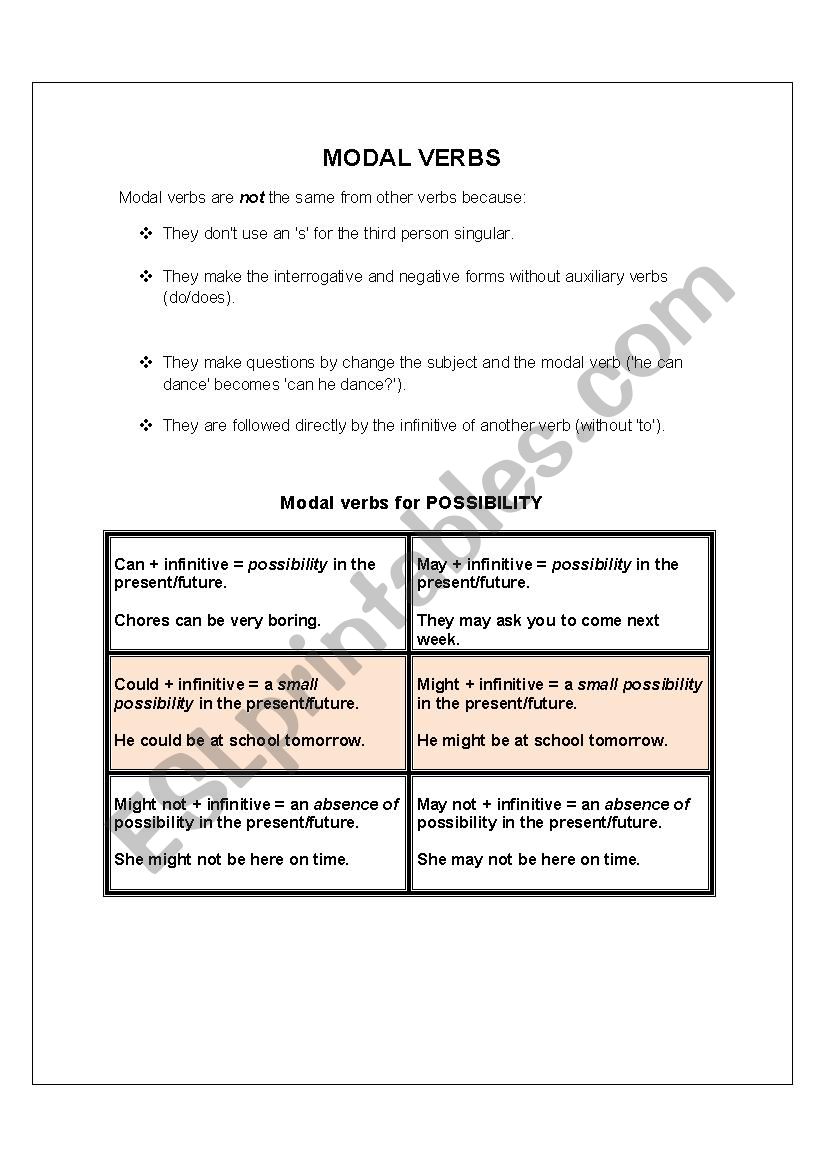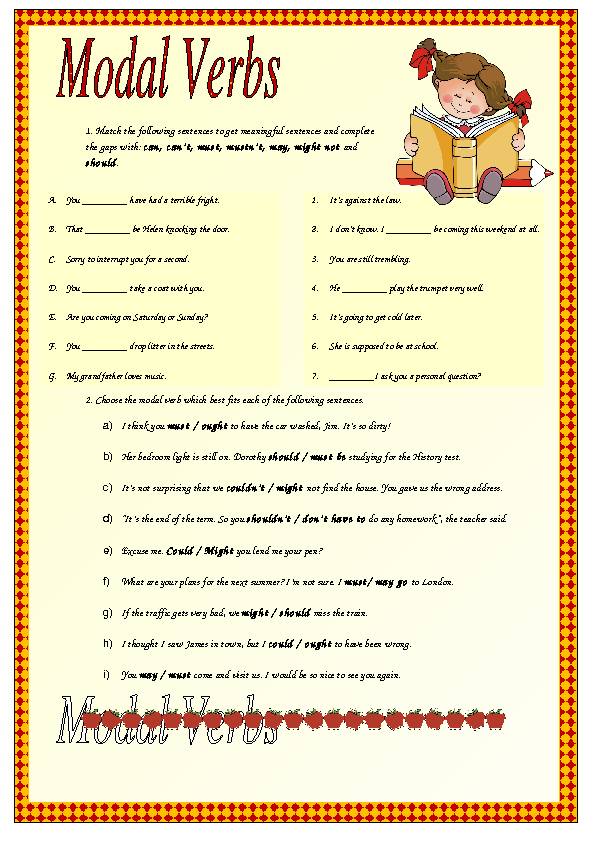
He believed he would reach the Amazon River in a few days. For each of the following sentences, change the verb in the mainĬlause from the Simple Past to the Simple Present and change the modal auxiliary from the past to the present. You think we can reach our destination by nightfall.ĥ. Does he not realize we may meet him there?Ĩ. For each of the following sentences, change the verb in the main clause from the Simple Present to the Simple Past and change the modal auxiliary from the present to the past. They could have been playing football yesterday.Ĥ. Do not use contractions in this exercise. Change the following affirmative statements into negative questions. Change the following affirmative statements into negative statements. They could have been waiting for the bus.Ģ. Change the following affirmative statements into questions. We have included their examples to elaborate on the modal verb range.ĪFFIRMATIVE interrogative clauses ( ‘yes/no’ forms) with modal auxiliary verbs.Table of Contents | Alphabetical Index | Back to Chapter 10 EXERCISES for CHAPTER 10. There are 3 overlapping A2 points in the English Grammar Profile related to modal verbs questions.

Would you believe me if I said I didn’t know? *This should be at least similar to indirect questions with ‘Do you know’ + ‘how’, ‘where’, ‘why’, or ‘what’ When you are talking about things that might happen.Ĥ2 COULD YOU TELL 7706 = * A2 polite request / indirect questionĬould you tell me wherethe bathroom is, please? They are examples of formal inversion in conditional clauses

Therefore, the following is interrogating someone for their version of events:Īll three of you showed up around the same time?Ģ5 SHOULD YOU NEED & 27 SHOULD YOU WISH 10043 I would say = is used for giving your opinion even though other people may not agree There is a listing in the Longman dictionary: Therefore, we believe being able to combine them with the modal interrogative structure is B2 at least (there is no listing in the English Profile for this, so it might actually be C2) Present simple reporting verbs are listed at B1 in the English Grammar Profile. *We have removed ‘ can you‘ and ‘ can we‘ because they are all listed at A1.

To find the other most common modal verb + pronoun subject + lexical verb patterns we can search in the iWeb corpus with the following query: ‘Can I get…?’ is one the most common modal yes/no questions. finish the sentence with a question mark.add any other information IF needed for the verb OR to complete your meaning.follow it with the bare infinitive ( Do not use to).To form a yes/no question with a modal auxiliary verb, Here is an affirmative declarative sentence: Let’s start with A1 grammar to explain how to form modal verb questions when asking for something.


 0 kommentar(er)
0 kommentar(er)
